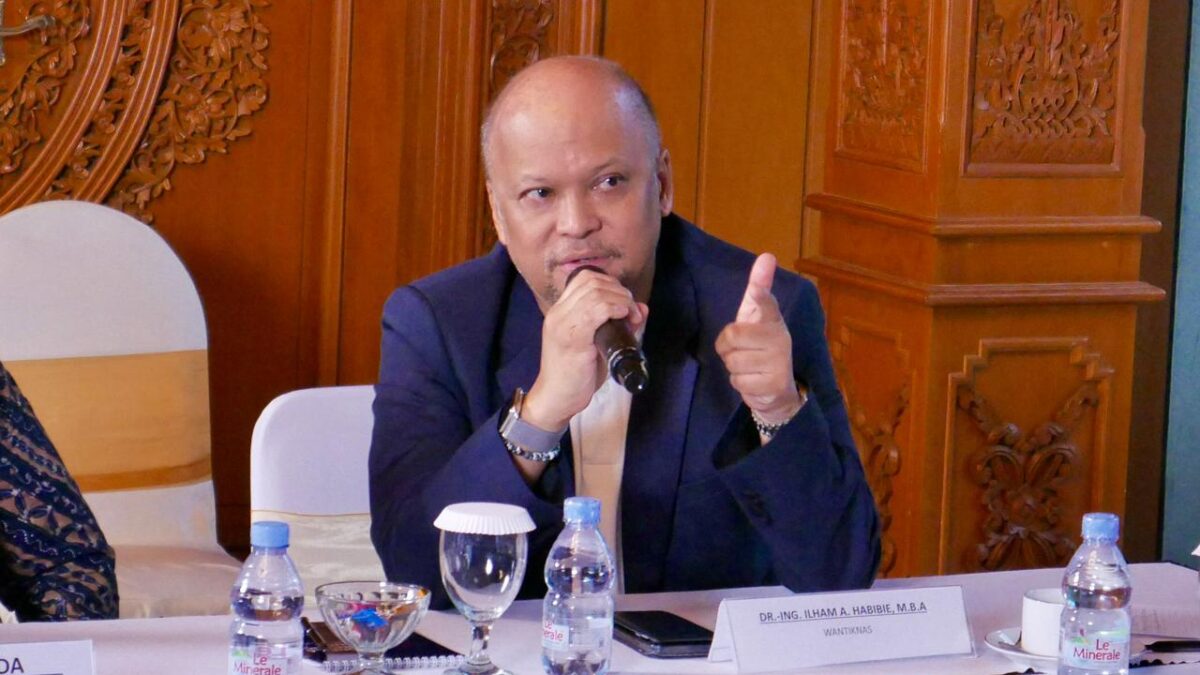Jakarta, 15 January 2024 – Chair of the National ICT Council (Wantiknas) Implementation Team, Ilham Habibie, revealed that the biggest challenge facing Indonesia in moving towards digital transformation is the low level of digital financial literacy among the public. Therefore, literacy must be improved.
As a result of low literacy, according to Ilham Habibie, many Indonesians are trapped in illegal online loans (pinjol) and fraud under the guise of investment. This occurs due to a lack of understanding in society regarding digital finance, amidst high levels of inclusion in the form of the proliferation of digital financial products.
“So, the biggest challenge is increasing digital and financial literacy for users. “It is very difficult to prevent such a phenomenon from occurring in any market,” said Ilham Habibie at “The 10th Annual Indonesia Economic Forum 2023” at The Habibie-Ainun Library Jakarta, Thursday (30/11/2023).
In the event which was attended by a number of ministers and international experts, Ilham did not deny that regulations for financial technology (fintech), especially regarding loans, must be tightened. This problem actually does not only occur in Indonesia, but also in other countries in Asia.
“I mean, we’ve now seen major challenges in Asia, where online lending, in particular, is taking a heavy toll. “That is not due to regulatory rules, but mainly due to the inability to prevent illegal lenders from entering the market,” he said.
Tight and Digital Friendly
Ilham Habibie explained, in recent years, India has become one of the most advanced countries in the field of digital financial innovation, including fintech. This happened because the regulator’s policy was strict, but still digital friendly.
“In that case, every time something new comes along, it will be given space first in the so-called regulatory sandbox, namely the testing mechanism carried out by the regulator to assess the reliability of business processes, business models, financial instruments and governance,” he explained.
Ilham added, through strict sandbox regulations that still provide opportunities for innovation and are digitally friendly, the risks of every digital financial product can be minimized. Thus, digital financial products do not provide opportunities for losses, especially for consumers.
On the contrary, said Ilham, these digital financial instruments and products provide great benefits and added value for society, especially in providing access to financial products.
“In this way, digital financial products help encourage economic growth and improve people’s welfare, especially those who were previously untouched by access to formal financial institutions,” said Ilham Habibie. (CR-8)
The original article in Bahasa Indonesia can be accessed here

